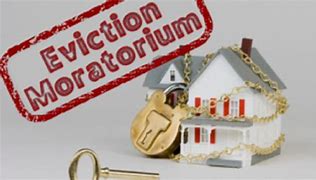
The pandemic created many ills, one of the biggest of which was (and continues to be) the inability of many people to pay the rent for their residences. In a normal world, when the tenant is in default of paying rent, the landlord can file an eviction suit if the tenant will not leave voluntarily. But since March 2020, we have not been in a normal world. We have had both state and federal moratoria on residential evictions. There has been some rental assistance available, but for the most part the tenants had to request the assistance and only then might the landlords see some money. The usual scenario was that the tenants did not pay rent and did not seek rental assistance, so the landlords had no income from the leased unit but still had to pay bills (such as taxes, insurance and the mortgage) and could not evict the tenants.
The Pennsylvania eviction moratorium expired long ago. But the CDC, under its vast (but now being questioned) public health powers, has kept in place a federal eviction moratorium. The current moratorium on residential evictions was just extended by a month and is now set to expire July 31, 2021. this is supposed to be the last extension. That remains to be seen.
During the pendency of the CDC moratorium, federal courts around the nation have been asked to declare the CDC moratorium as void and illegal (and unconstitutional). Some have found it to be legal and others have decided to the contrary and issued injunctions – either within the jurisdiction of the court or nationwide – so that the moratorium could not be enforced. One decision in this saga that may have resulted in us being able to see the future with some legal clarity just came from the US Supreme Court.
On June 29, 2021, by 5-4 vote, the Court denied a request to block the CDC eviction moratorium. The case was brought by landlords, real estate companies and real estate trade associations who argued that the CDC exceeded its authority in issuing the moratorium. The trial (District) court agreed with the plaintiffs but stayed its ruling pending appeal. The appellate (Circuit) court did not lift the stay. The government then asked the Supreme Court to leave the CDC moratorium in place. The swing vote on the Court looks to have been Justice Kavanaugh. His opinion said that while he agreed that the CDC exceeded its authority, since the moratorium is scheduled to end in a few weeks and that time will permit distribution of congressionally appropriated rental assistance funds, he will let the moratorium remain in place. But, and here’s the future knocking, Justice Kavanaugh also said that beyond July 31, there would need to be congressional authorization for the moratorium.
So, the moratorium is in place until July 31st. What does that mean to you as a landlord or tenant?
First, the moratorium applies only to residential leases. Next, it applies only to monetary defaults caused by COVID. In other words, as a result of a condition caused by COVID, the tenant is unable to pay the rent (or some other monetary obligation) that is due. That condition might be a loss of employment, fewer hours worked, the inability to work due to a medical condition, or something else. If the tenant is unable to pay the rent due or fulfill another monetary obligation due under the lease as a result of that condition, the landlord may not evict the tenant.
Eviction proceeds are normally begun with the filing of suit with a Magisterial District Justice (“MDJ”). Some MDJs in Pennsylvania will not even accept an eviction suit during the moratorium. Others will accept it but take no further action while the moratorium is in effect. Still others will accept the suit and process it to judgment, but not permit eviction to occur while the moratorium is in effect. Knowing what the applicable MDJ office will (or will not) do may be helpful as far as timing of eviction.
But what if the default under the lease is non-monetary? Or the lease has ended according to its terms? The CDC moratorium does not apply and eviction may proceed. Let’s look at an example. If the tenant lost a job and has failed to pay the water bill, and paying utilities is a condition of the lease, that is a monetary default for which eviction is stayed under the moratorium. If, however, the tenant has left inoperable vehicles all over the yard, and that is not permitted under the lease, then eviction may proceed.
The question in situations where the default is not monetary is whether or not the MDJ will accept the eviction suit or process it. Despite the CDC moratorium not applying to those situations, some MDJs play it safe and will not accept eviction suits based on non-monetary defaults during the pendency of the moratorium. Others will accept but not process the eviction suit based on a non-monetary default, and still others will enter judgment but not allow eviction during the moratorium. Again, know what the applicable MDJ office will do.
If you have questions about the moratorium or the legal process, or your rights or obligations as a landlord or tenant, you can always contact us for assistance.

 York, Pennsylvania 17403
York, Pennsylvania 17403